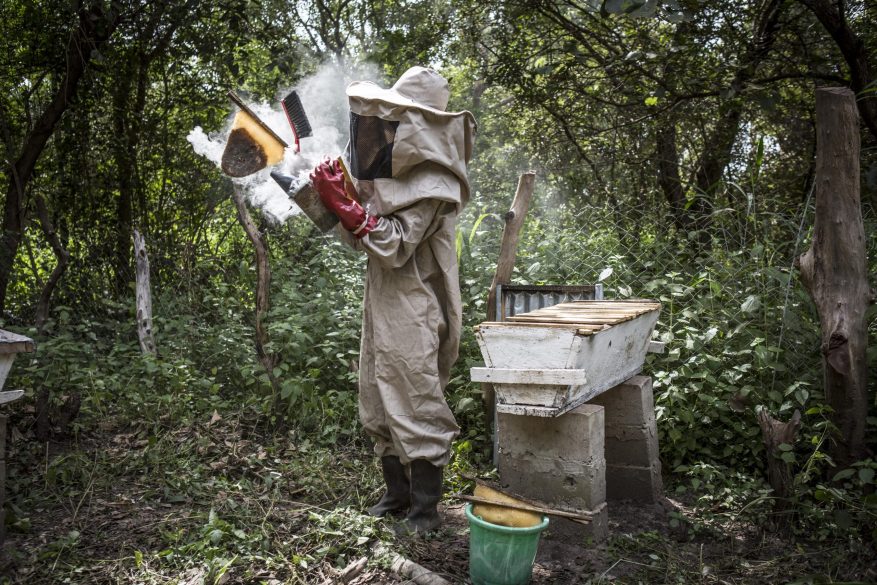World Bee Day raises awareness of the essential role bees play in keeping the planet and its inhabitants healthy as well as the threat to them posed by human activity. Bees are vital for food production and agriculture across the world, as they are the main pollinator of plants and crops.
World Bee Day takes place on May 29th annually. This year’s theme is ‘Bee engaged – build back better for bees.’ Almost 75% of the crops we eat depend on bees and other pollinators so their survival and health is critical for our planets ecosystems and biodiversity.
In addition, beekeeping provides more than just honey – it also provides a pathway out of poverty for farmers in rural African communities. Bees help households produce food, increase their crop yields and earn an income. We have supported bee keeping and honey production in Uganda for over 20 years through training, promoting best practices and new technologies.
One example of this is the MORE Honey project in Uganda which Self Help Africa implements alongside local and international partners. It was set up in 2019 and is on course to create employment and income opportunities for over 2,000 people in Karamoja. Uganda produces over 10,000 metric tonnes of honey every year and has the potential to produce much more.
Betty, a project participant, has changed her life for the better since joining: “I use my income from bee keeping to pay for my children’s education so that they will have more opportunities in the future. I’m
not afraid of the stings anymore!” she adds. Beekeeping is not reliant on good soils or rainfall, which makes it a great climate- smart option and diversification enterprise for small-scale farmers. You can also support families by purchasing a beehive from our shop here.

